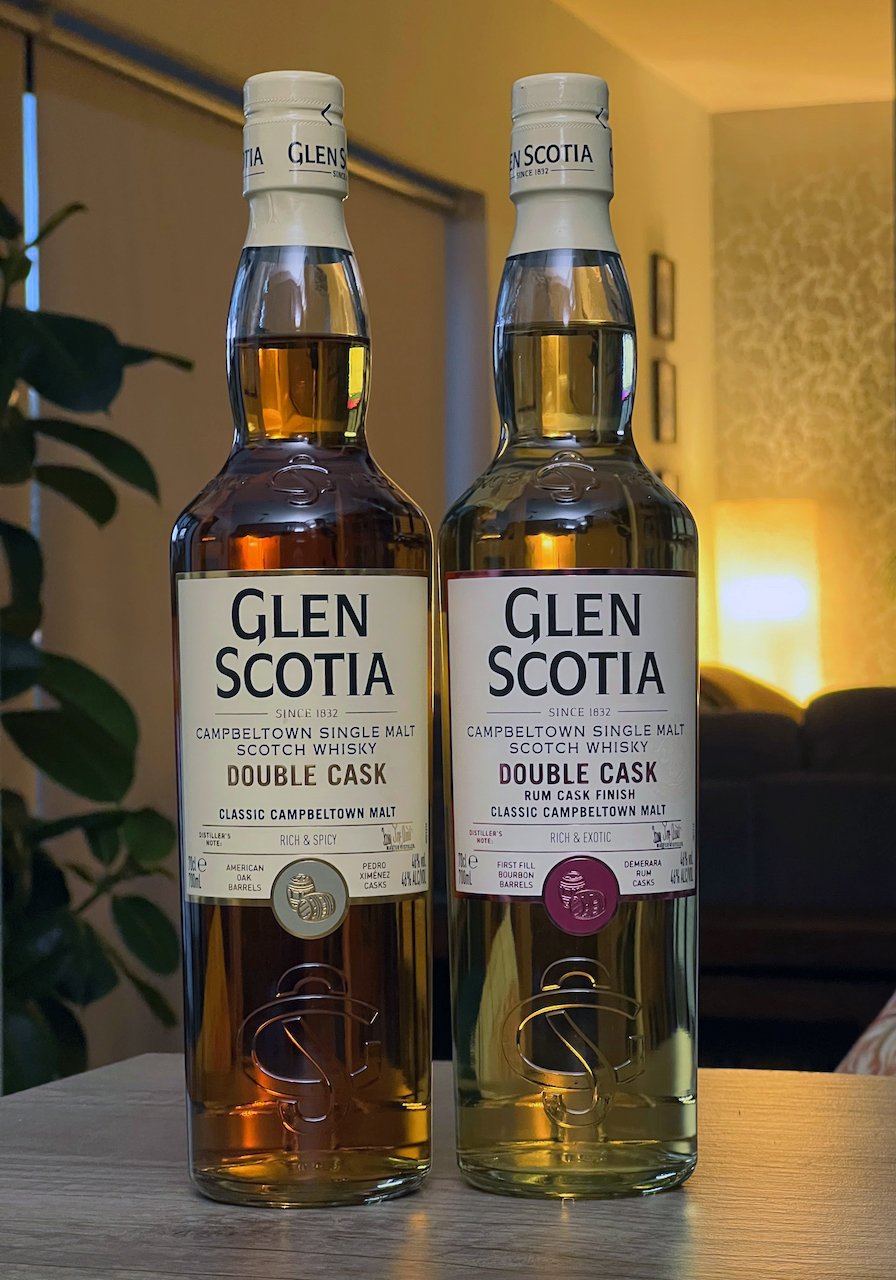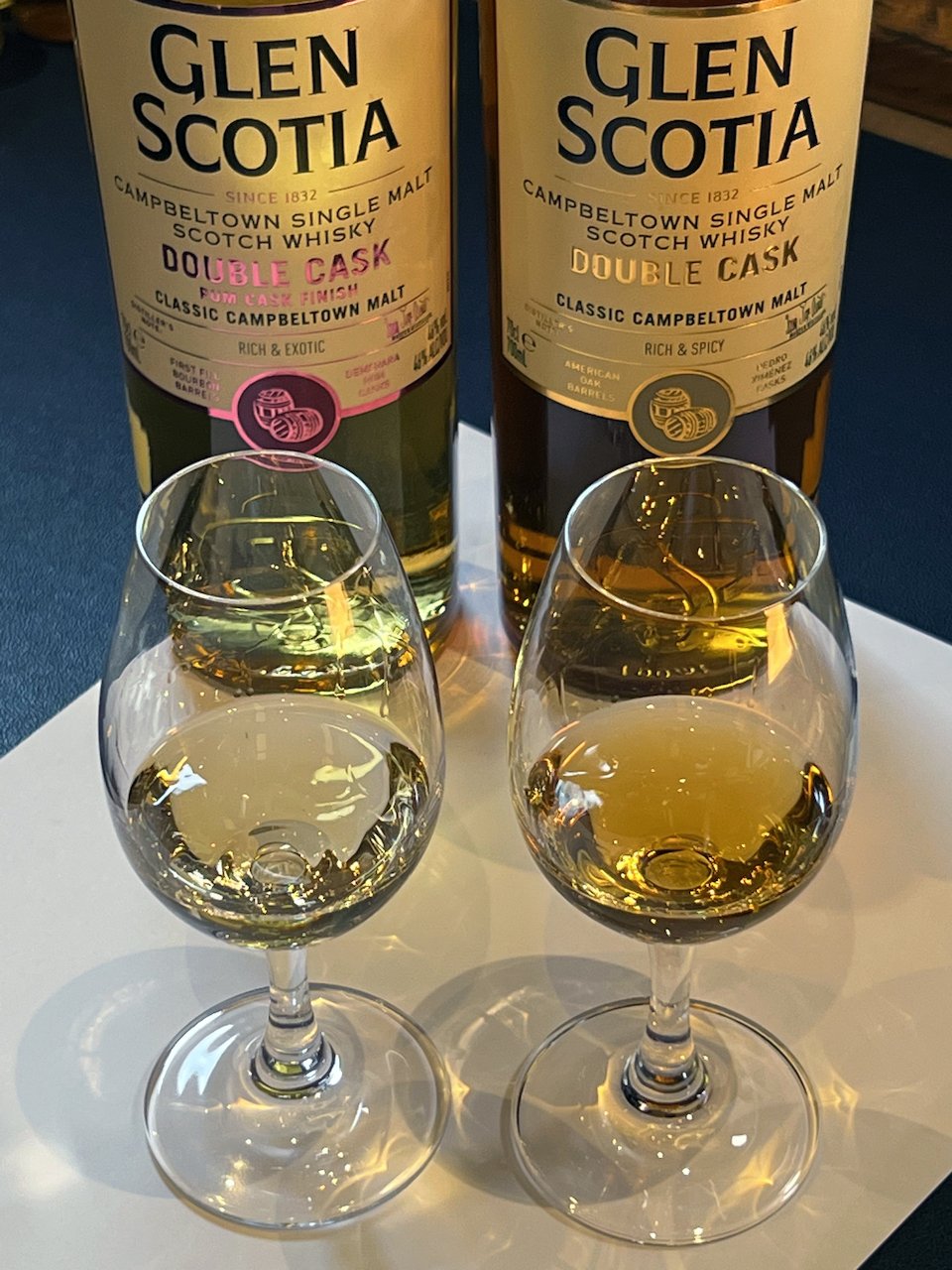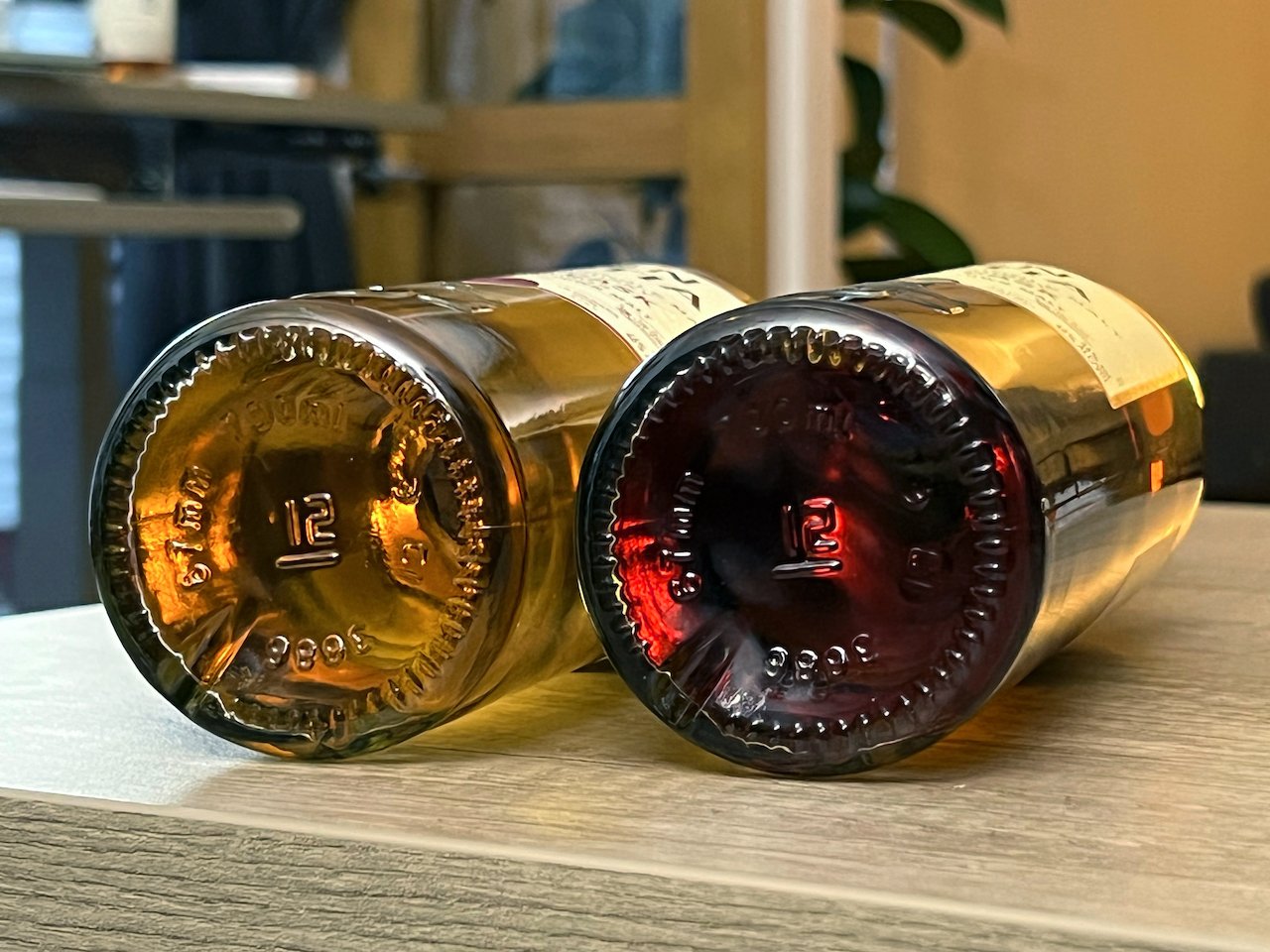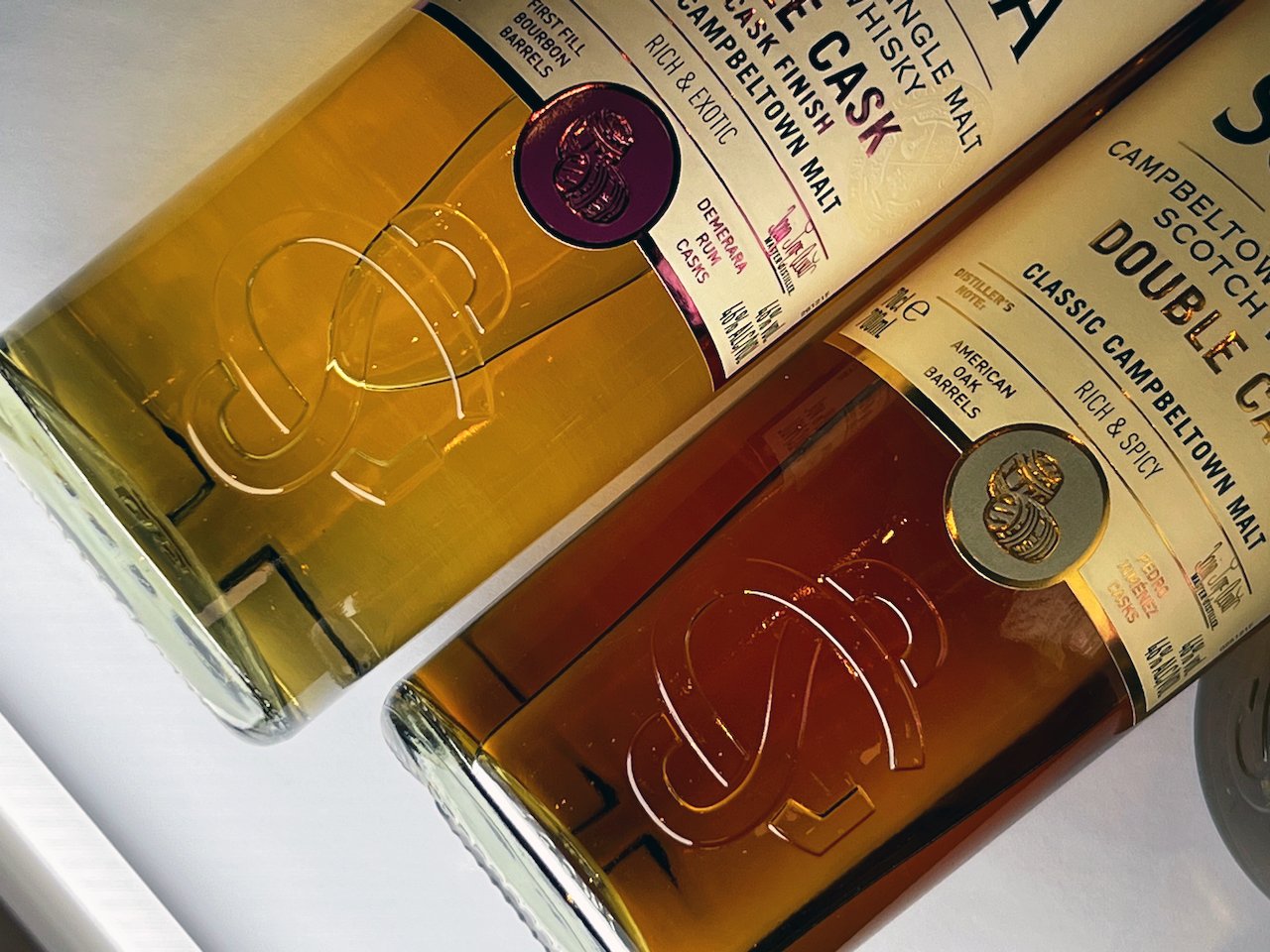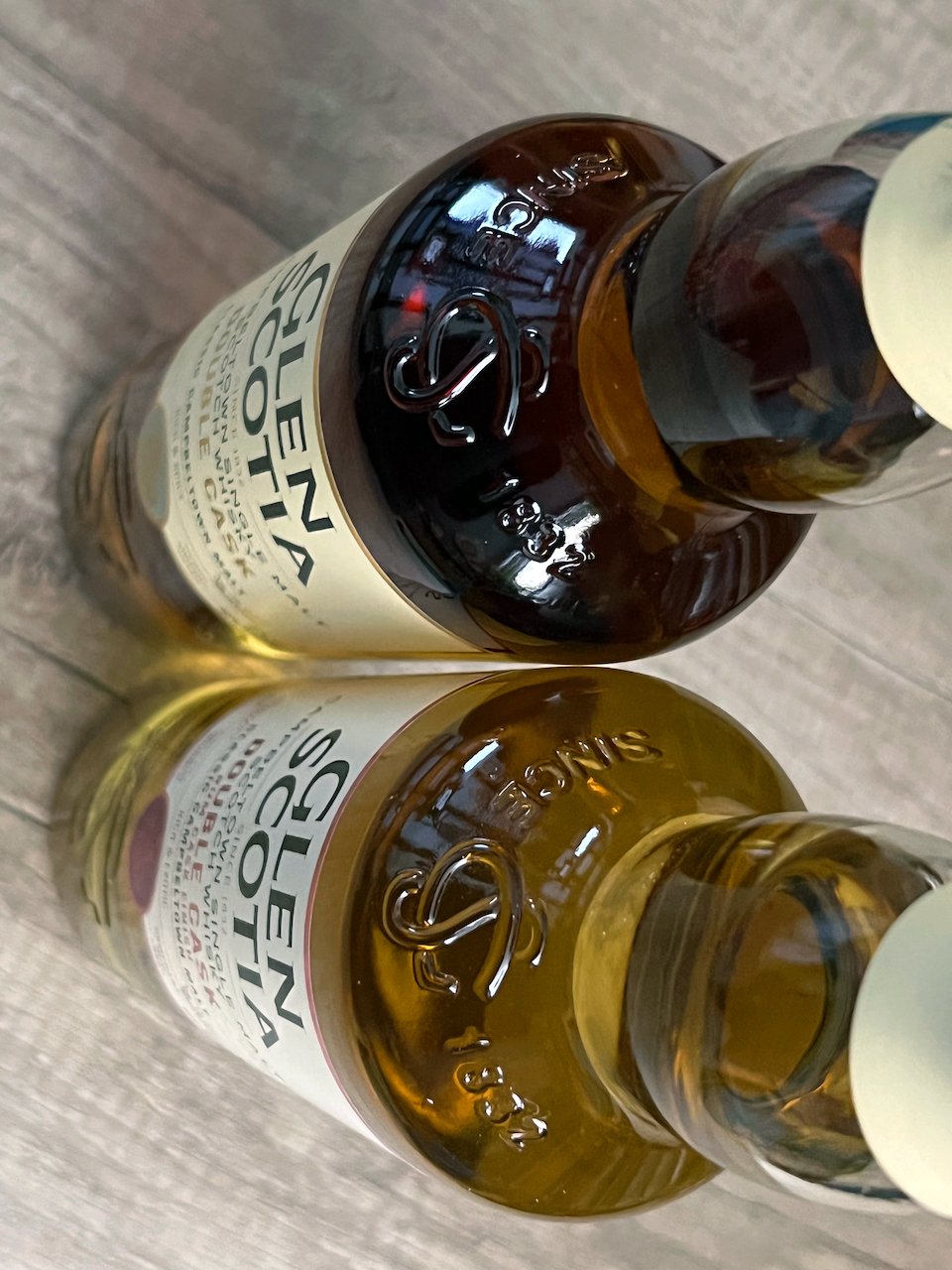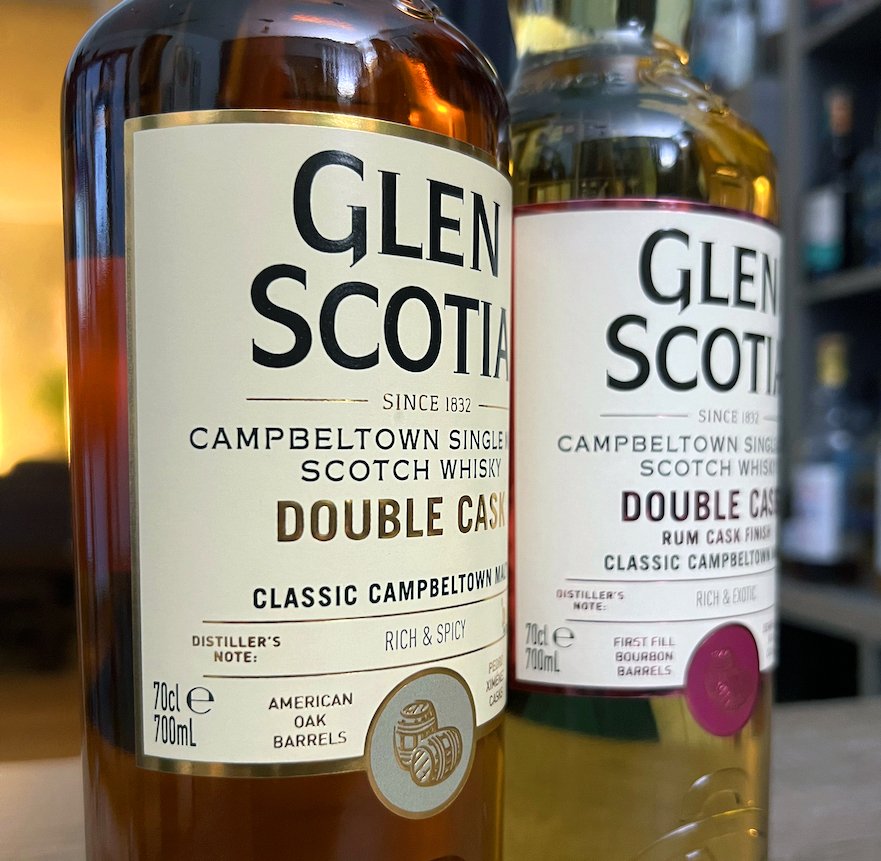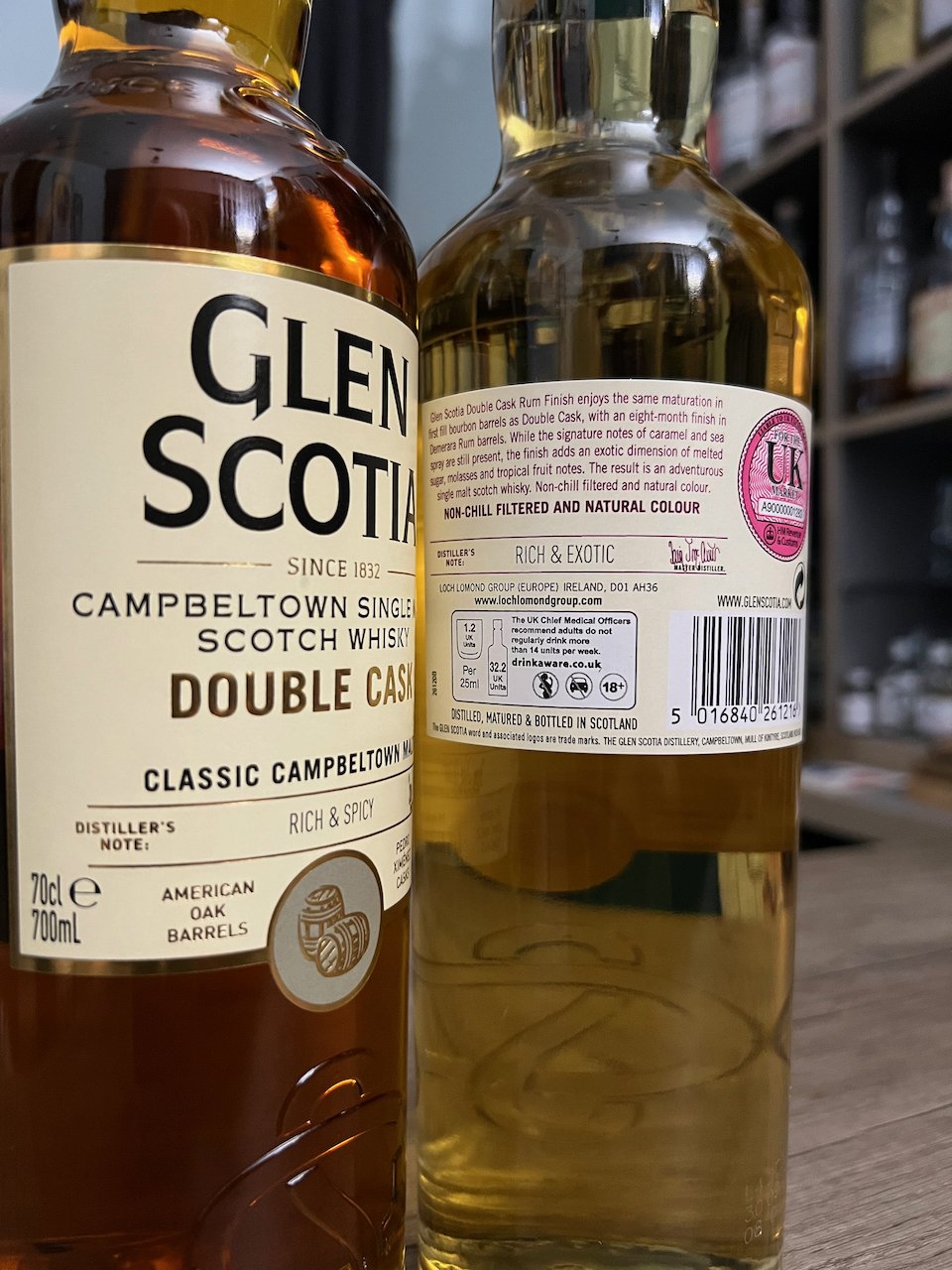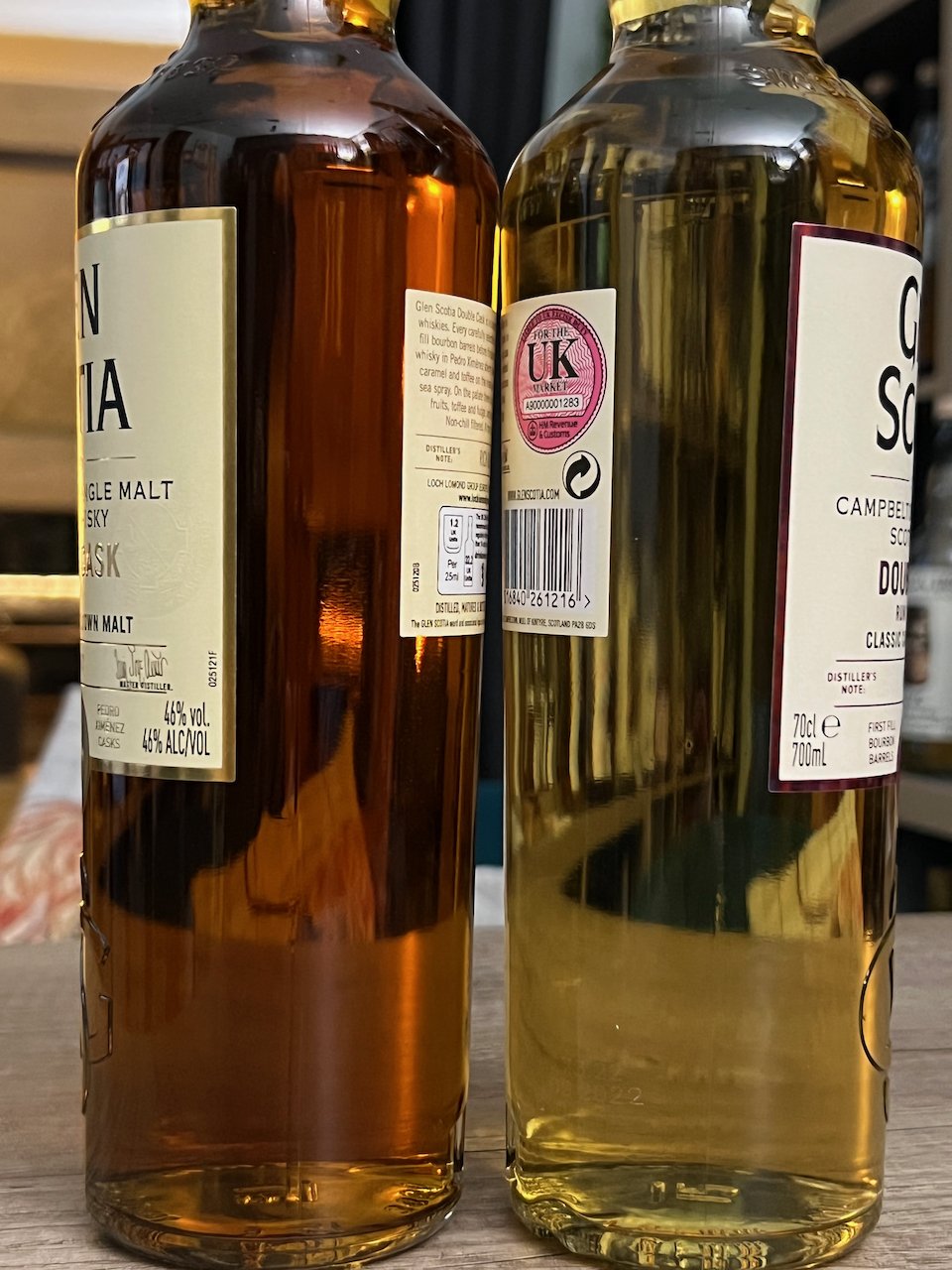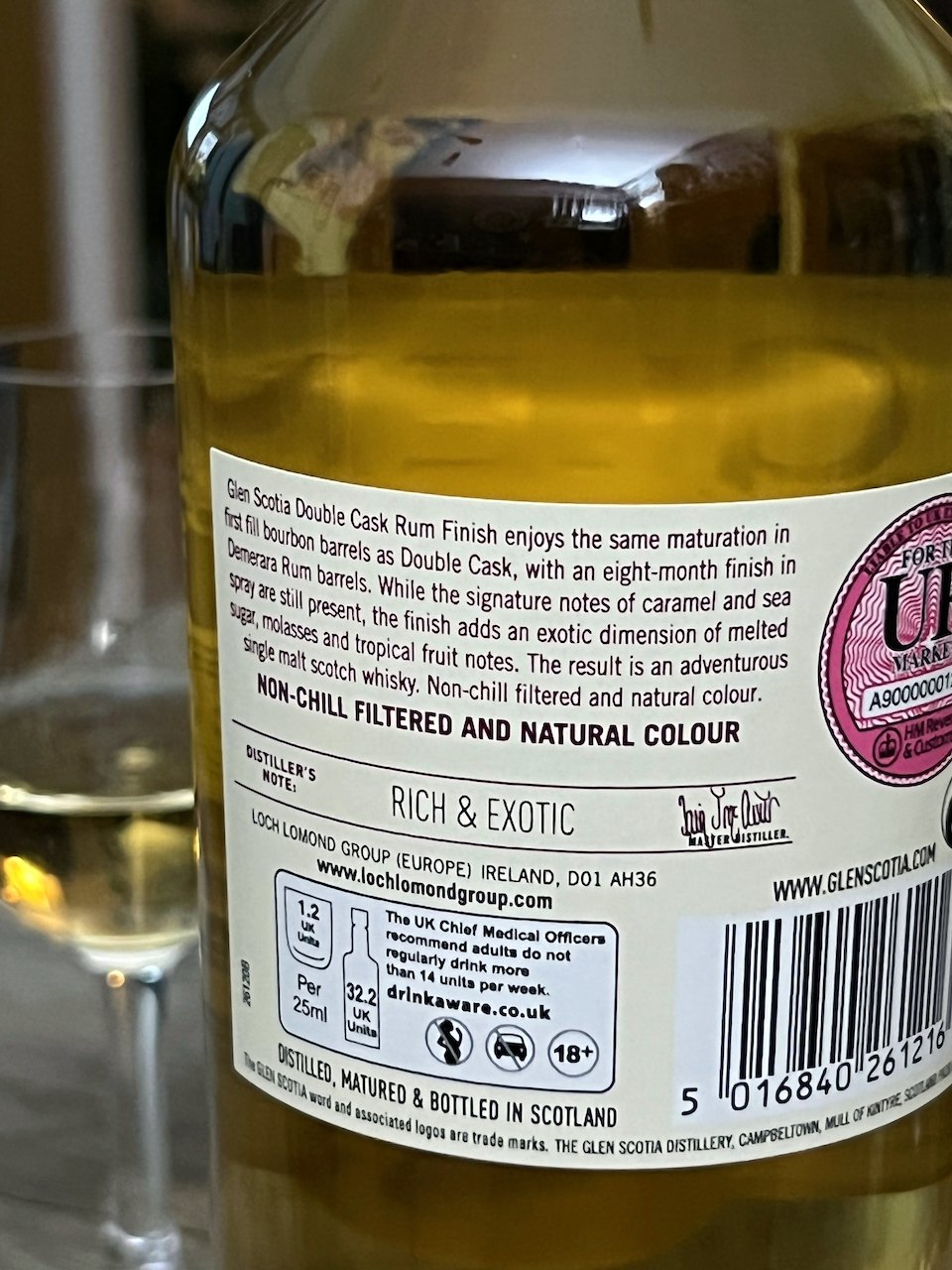Glen Scotia Double Cask vs Rum Cask
Double Cask Official Bottlings | 46% ABV
Score: 6/10
Good stuff.
TL;DR
Good, natural malt. But…
In this game, they’ve thrown the ball in our court
If you pause and consider it for a little while, this release is a little odd.
Despite a strong idea of ‘traditional’, whisky is constantly evolving. That means any given snapshot in time, especially during a period of particular fluidity, is going to be interesting to enthusiasts. Such as today, where we’ve never seen so many naturally presented malts available. Also Glen Scotia; a renaissance distillery with a broad selection of expressions, of which some are natural and others are not. Yet.
Here we have the newest release in their Double Cask range. Interestingly, it wasn’t a range until now. Yet, with this Rum Cask release, and others in the pipeline, we understand it’ll become a range and we hope that’s a good thing. But it’s also a step in a direction that seems… well, loaded. You see, this is the first Double Cask that’s presented without any added caramel colouring. And proudly so. Which, indeed, is a very good thing. Right?
Well, the original Glen Scotia Double Cask enjoys a PX cask finish. Generally, a PX cask, either European oak or - more likely - American oak, will not only add lots of sweet sherry flavours to a malt, but will also impart some rich colour too. Yet, as things stand, the PX original expression, while un-chill filtered, remains reliant on adding colour. It’s an established product, so it’s understandable there’s a perception of risk to suddenly have a step-change in colour between batches. The Rum Cask Finish expression we have here is, conversely, new. Therefore there’s no need to remain consistent to precedent or expectations. You may also suggest it’s understandable that a used ex-rum cask would impart much less colour. Which would be just as well, because this whisky is very pale in comparison to the original. Personally, I think it’s brilliant. But it’s risky.
Imagine you’re playing a strategy board game, and you’re at the helm of a pretty big whisky business. There’s pressure from those ‘in the know’ to modify your best sellers into becoming natural, but experience tells you that the majority of your customers don't know or care. You’re also aware that darker colour whisky sells; markets and drinkers have an expectation of what whisky should look like. While you’re taking flak from a minority for adding it, you know that the addition of a little caramel colouring fulfils that expectation and shifts cases of lovely, dark whisky. No doubt you’re aware of the success of the fastest-growing brand from the highland region; Dalmore; King of Caramel.
internets are pretty funny
So, honestly, do you stick to the successful strategy or are you willing to place your bets on a more risky model that runs against your established business sense? Maybe you don’t want to choose, maybe you want to experiment a little first? A measured roll of the dice; just a few tokens perhaps. I think the team at Glen Scotia have chosen an experimental step on this one, rather than a full-on strategy change.
You see, the whisky in Glen Scotia’s Double Cask is typically a five year old malt, finished for a further time in another cask. So, perhaps six years old at best. This is not, actually, a bad thing. After a recent tour of Glen Scotia I was left wishing I could’ve secured a bottle from one of the casks they let us try in the warehouse. It was the last cask of the tour and it stayed with me for the rest of the day. It was a bourbon barrel and just six years old. It was simply gorgeous; thick, viscous, sweet and coastal and I wanted some. Such are the investments in production over the last few years you could argue that this Campbeltown distillery, today, is making the best whisky in memory. But, after six years, even good quality malt, in good quality, first-fill, ex-bourbon, is often very pale indeed. Somewhat reminiscent of Jack Nicholson’s “you can’t handle the truth” meme from A Few Good Men, it’s almost as if they are saying “Are you sure this is what you want?”
“Yes!” We declare; chests puffed and Glencairns raised. As enthusiasts at least, we know what’s right and we know what we want. But if you really wanted to beat your pals at that strategy game - ask yourself - really? Would it be the way to go? Maybe not - especially when you know those chants are coming from a percentage of your customers that can be measured in single digits. You can’t let the tail wag the dog.
But there’s another play on offer; the long game. What if your competing players saw through your fakery and kowtowing to old-hat expectations and ignorant markets. What if they could sense the shifting tides of a more informed customer? What if they could envisage the brand-altering potency of a cutting, percipient internet meme? What if they leveraged these and took charge of redefining what whisky was and invested in education, understanding and placing quality, integrity and flavour first? What if they looked to the horizon and considered the styles of whisky that are now established legends? If you were Glen Scotia, your horizon wouldn’t be much further than the distillery across town.
Playing the natural card for decades, Springbank’s future is on an incredibly solid footing. They simply can’t make enough whisky to satisfy the relentless demand. So who helped build their reputation as they toiled tirelessly, focusing on the whisky, turning their backs on the supermarket demands and market cynicism? Go on; raise those Glencairns and puff those chests once more, because enthusiasts did that. We are not the tail of the dog, we are the nose.
I hope what we are witnessing here is the evolution of one of Scotch whisky’s gems. Glen Scotia’s days of terrifying inconsistency are behind them. Their single cask and limited releases become evermore natural and in-demand. Their natural Victoriana expression proudly declares its lack of makeup and polish - and doing very well on it too. Yes, it’s curious they chose such a pale and naked whisky to take this step with, so I guess the gauntlet is lain. They’re playing a canny game of caution. Our move.
It’s up to us to decide if we can handle the truth and, much more importantly, will we step up and pay for it? Well, it’s all very well going down a natural path, but first and foremost, the whisky still needs to be good and priced well. So let’s see if they’ve been fair with us.
For kicks, I’ve made this a Double Cask double review and put it up against its running mate, the aforementioned original PX finished Double Cask.
Review 1/2
Glen Scotia Double Cask Rum Cask Finish, 46% ABV
£43 direct, prices variable elsewhere but generally available at time of writing
Both Double Cask expressions are American oak for five years then finished. This expression specifies first-fill bourbon before a finish in demerara rum casks for a further eight months. I heard Guyanese, if that’s important to you. In relative terms, but increasingly less so with the onslaught of new distilleries, this is fairly young whisky. Retailers are busy playing funny buggers with this right now, I bought mine from an independent in October when it first dropped for £42. But at the time of writing you’ll pay more from the two biggest online retailers in the UK with £48-£50 being the asking price. A little salty. Wait for it to come on offer (it will - the standard Double Cask already is) or go direct to the distillery and pay a more reasonable £43. Naughty online retailers.
Score: 6/10
Good stuff.
TL;DR
Sweet and thick. Good, natural malt.
Nose
Creamy and malty. Rice pudding with a sweet golden syrup. Cooked apples and a buttery pastry. A little herbal acidity; white wine or vermouth? A sprig of mint too.
Palate
A thick, viscous arrival, buttery and oily. Thank goodness for the 46% ABV and avoiding the chill-and-strip filtration. It’s sweet and creamy, almost waxy too. Apple and pears swirl, but they’re cooked. This is very dessert-like; creamy vanilla custard and a brown sugar syrup. A cracked pepper spice appears mid-palate but the finish is relatively short, although the viscosity helps things hang around, there’s some oak and a little lingering saccharin. Overall a sweet, spirit-driven experience. Moreish.
Score: 6/10 WMc
Review 2/2
Glen Scotia Double Cask, 46% ABV
£43 direct, prices variable elsewhere but generally available at time of writing, often on offer
Score: 6/10
Good stuff.
TL;DR
A rich and layered crowd-pleaser, young malt done well.
Nose
Burnt sugar, clear toffee, honeycomb, orange rind and gingerbread. Tobacco and a little rum & raisin syrup. Mint once more.
Palate
Warm and spicy on arrival with seasonal spices; a little cinnamon and clove. A blast of dark honey and orange oil. Boozy raisins. Fades to a medium and lightly spiced finish. Slightly longer on the finish but a touch less viscous overall.
Score: 6/10 WMc
The Dregs
In the two months of owning these, it’s interesting to me that I’m halfway through the rum cask and only a third into the original. I think it’s because I’ve been intrigued by it and I’ve been going back and forth. It is moreish and, being the type to favour a thick and viscous spirit over a cask-led pour, I think the levels betray that. But, for me, there’s a hurdle; I don’t seem to favour rum casks. Well, not yet, at least. There was that Springbank release that was very nice, but I’d still take other Springers over it. It’s just not my thing, yet. Usually, they’re just a little too sugar-sweet.
Still, I am glad to have this. But, close to £50 at The Whisky Exchange and Master of Malt, it’s a little too expensive. Currently you can buy from the distillery directly, it’s cheaper, and I’m sure you’ll see offers on these. If both these Scotias were the same price I’d take the rum cask, and that’s a surprise to me. It’s lovely and thick and I enjoy the texture very much. But if I were buying for sharing or making a recommendation, there’s much more approachability to the widely celebrated and successful original release. I can see why folk like it. I want to jump and shout about the natural release, I hope they keep it up. But this time, they’ve chosen an odd one for their first natural release and I’m not sure it’s fair, for them, or us. However, it’s a welcome addition to the range and more choice for us all. I’ll celebrate it and hope for more of it. It’s good and, more importantly, honest, transparent whisky. In that respect, while the game is still playing out, this win is ours. I hope, in the end, it’s theirs too.
Score: 6/10 WMc
Tried this? Share your thoughts in the comments below.
-
Dramface is free.
Its fierce independence and community-focused content is funded by that same community. We don’t do ads, sponsorships or paid-for content. If you like what we do you can support us by becoming a Dramface member for the price of a magazine.
However, if you’ve found a particular article valuable, you also have the option to make a direct donation to the writer, here: buy me a dram - you’d make their day. Thank you.
For more on Dramface and our funding read our about page here.
Other opinions on this:
Got a link to a reliable review? Tell us.

